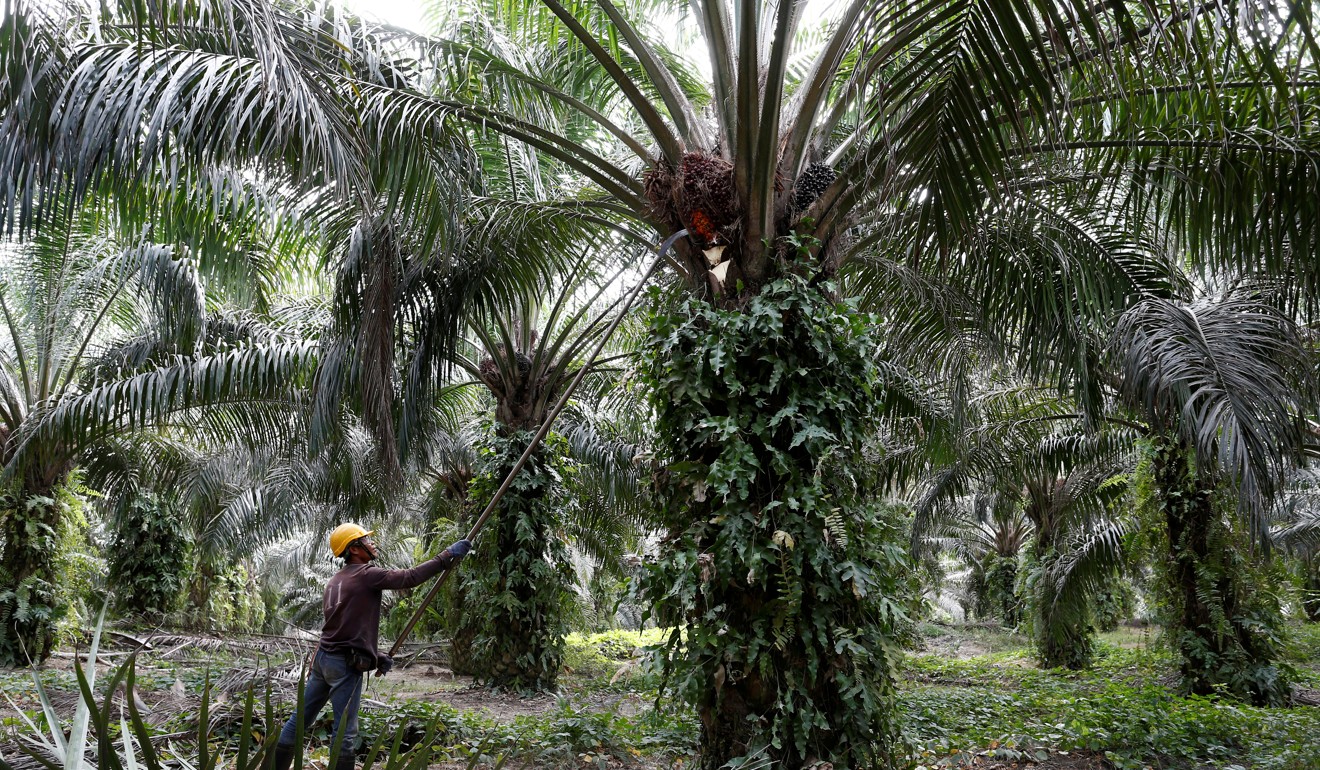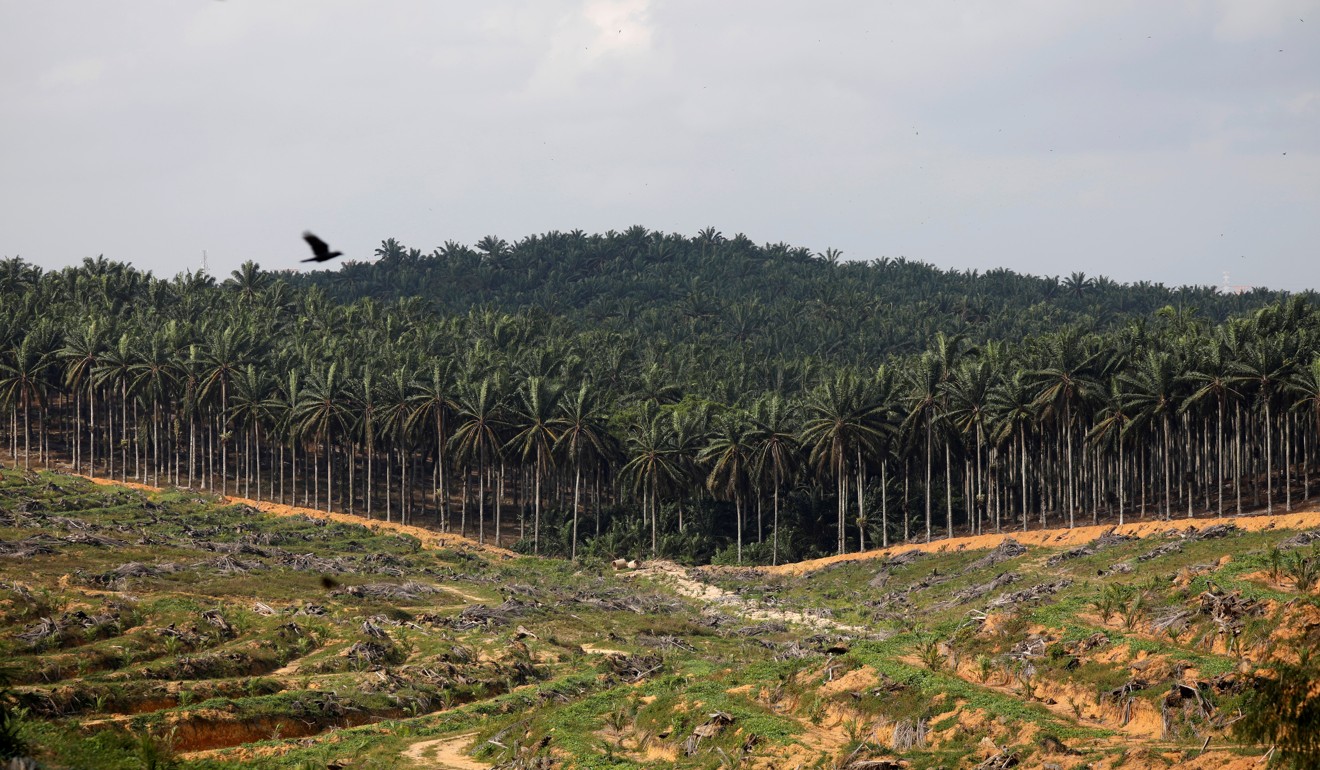
Indonesia joins Malaysia in banning ‘palm oil free’ products from stores to protect industry
- Indonesia and Malaysia together account for about 85 per cent of global palm oil supply, but are under pressure after the EU moved to phase out palm oil use
- The country says it has a duty to protect the palm oil industry, and will educate people through an awareness campaign

Indonesia, the world’s top palm oil producer and consumer, is joining Malaysia in removing anti-palm oil products from grocery store shelves.
Local and imported food items labelled “palm oil free” or “no palm oil” that are found at some high-end stores, will be removed, Penny K. Lukito, head of the National Agency of Drug and Food Control, said on Wednesday.
Indonesia and Malaysia, which together make up about 85 per cent of global palm oil supply, are upping their fight against what they say are discriminatory actions by some developed countries. They have threatened to retaliate in a potential trade war with the EU after the bloc decided to place stricter limits on the tropical oil’s use in biofuels on concerns over deforestation.

“The labelling is part of a black campaign to undermine the competitiveness of Indonesian palm oil,” Lukito told reporters in Jakarta. “Palm oil is very important for Indonesia and it is the government’s duty to protect the industry.”
The agency will initially educate and persuade the sellers, she said. Legal action will be taken if the stores continue to sell those products, she added. She declined to name the retailers.
There’s a perception among people living in urban areas that palm oil is not healthy, which encourages consumers to avoid the product, but that has not been scientifically proven, Lukito said.
The agency, as well as the Indonesian Palm Oil Board and the Trade Ministry, will hold a campaign to raise health awareness, she said.
Malaysian Prime Minister Mahathir Mohamad on Monday called on Britain to engage with palm oil growers to incentivise sustainable production, rather than pursuing boycotts after its scheduled exit from the European Union on October 31.
“The key is to rethink the European Union’s misguided policy on palm oil,” Mahathir said. “A fresh attitude toward palm oil, unencumbered by influential special-interest groups, could lead to even better trade terms between the UK and the region than it currently enjoys.”

The world’s most used vegetable oil can be found in everything from biscuits to shampoo and biofuel, but has come under constant fire from environmentalists saying that production of the crop causes deforestation and aggravates climate change.
In March, the European Commission determined that palm oil cultivation had resulted in excessive deforestation and it should no longer be considered a renewable transport fuel, albeit with some exemptions.
Plantations used in palm oil production account for 10 per cent of all global cropland. An estimated three billion people in 150 countries use products containing palm oil, meaning that each person consumes an average of 8kg of palm oil a year.
Worldwide production of palm oil has been climbing steadily for five decades. Between 1995 and 2015, annual production quadrupled, from 15.2 million tonnes to 62.6 million tonnes. By 2050, it is expected to quadruple again, reaching 240 million tonnes.